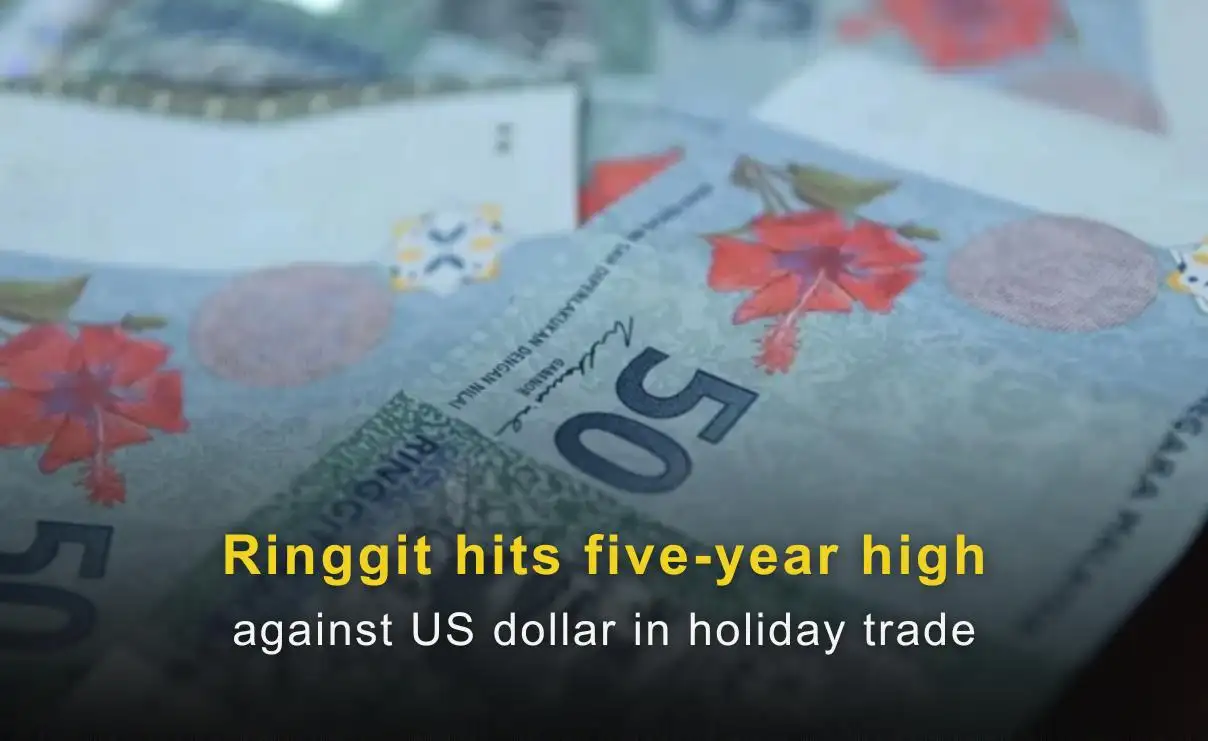Ringgit hits five-year high against US dollar in holiday trade
The Malaysian ringgit extended its rally, reaching a five-year high against the US dollar, trading in a narrow range of RM4.04-RM4.05.
简体中文
繁體中文
English
Pусский
日本語
ภาษาไทย
Tiếng Việt
Bahasa Indonesia
Español
हिन्दी
Filippiiniläinen
Français
Deutsch
Português
Türkçe
한국어
العربية
Abstract:Gold surged past $3,500 in April 2025, and $4,000 is now a realistic target as geopolitical tensions, expected Fed rate cuts, and strong central bank demand continue to fuel the rally.

Gold‘s performance in 2025 has been nothing short of remarkable. The precious metal has climbed over 25% year-to-date, recently touching $3,500 per ounce—a record high that has left analysts, investors, and central banks buzzing with speculation. The once-unimaginable $4,000 target is no longer fantasy; it’s a possibility thats now actively priced into the market. But what forces are propelling this historic rally, and what hurdles lie ahead?
Ongoing conflicts in Eastern Europe and the Middle East, alongside a re-escalated U.S.-China trade dispute, have severely dampened global investor sentiment. With Washington reintroducing aggressive tariffs and Beijing responding with hikes of their own—some reaching as high as 125%—economic stability is looking more fragile than ever. This turbulence has strengthened golds traditional role as a safe haven, particularly in times when fiat currencies and equities feel increasingly exposed to political crossfire.
The Federal Reserve has signaled potential rate cuts later this year, spurred by softening U.S. inflation and slowing economic growth. Lower interest rates tend to weaken the dollar and reduce the opportunity cost of holding non-yielding assets like gold. While inflation linked to tariffs remains a risk—potentially forcing the Fed to pivot back to a hawkish stance—for now, the market anticipates a more accommodative policy, providing a tailwind for gold.
The U.S. dollar index has hit its lowest level since 2022, further enhancing golds appeal to international investors. Capital inflows into gold-backed ETFs and physical gold funds have soared, reflecting growing interest from both retail and institutional players. Notably, inflows reached a record $80 billion by mid-April, according to BofA Global Research. This surge in demand tightens the market and supports elevated price levels.
Global central banks, particularly in emerging economies, are steadily increasing their gold reserves. Chinas central bank, for instance, reported record holdings in Q1 2025. This trend is part of a broader de-dollarization movement among BRICS nations and beyond. Gold, being stateless and liquid, offers a hedge against currency devaluation and geopolitical dependency—a factor that has turned central banks into persistent buyers.
Despite the bullish case, there are headwinds. A resurgence of inflation—possibly due to supply chain disruptions or extended tariffs—could cause central banks to pause or reverse rate cuts, strengthening the dollar and pressuring gold. Additionally, any sign of geopolitical de-escalation might reduce the urgency for safe-haven investments. Technically, the gold market is also facing overbought conditions, making it susceptible to sharp corrections, especially as speculative traders lock in profits.
Gold‘s climb toward $4,000 per ounce reflects more than just investor enthusiasm—it’s a signal of shifting global financial dynamics. From policy decisions to geopolitical instability and monetary restructuring, the gold market is being pulled by multiple converging forces. While short-term corrections are likely, the long-term thesis for gold remains compelling. Whether it reaches $4,000 or not, one thing is certain: golds role in global portfolios has never been more relevant.
Disclaimer:
The views in this article only represent the author's personal views, and do not constitute investment advice on this platform. This platform does not guarantee the accuracy, completeness and timeliness of the information in the article, and will not be liable for any loss caused by the use of or reliance on the information in the article.

The Malaysian ringgit extended its rally, reaching a five-year high against the US dollar, trading in a narrow range of RM4.04-RM4.05.

WikiFX has launched the “Inside the Elite” Interview Series, featuring outstanding members of the newly formed Elite Committee. During the committee’s first offline gathering in Dubai, we conducted exclusive interviews and gained deeper insights into regional market dynamics and industry developments. Through this series, WikiFX aims to highlight the voices of professionals who are shaping the future of forex trading — from education and compliance to risk control, technology, and trader empowerment.

As WikiEXPO Dubai concludes successfully, we had the pleasure of interviewing Robert Hahm, the Founder and CEO of Algorada. Robert Hahm is a seasoned financial executive who has successfully transitioned from managing traditional assets to founding a cutting-edge fintech platform. As the Founder and CEO of Algorada, he leverages decades of experience in portfolio management to bridge the gap between financial domain knowledge and the power of AI.

The U.S. National Futures Association (NFA) has filed charges against Forex Wizard, a Japan-based forex trading operation, and its principal Mitsuaki Kataoka, accusing them of failing to process customer withdrawal requests promptly.
